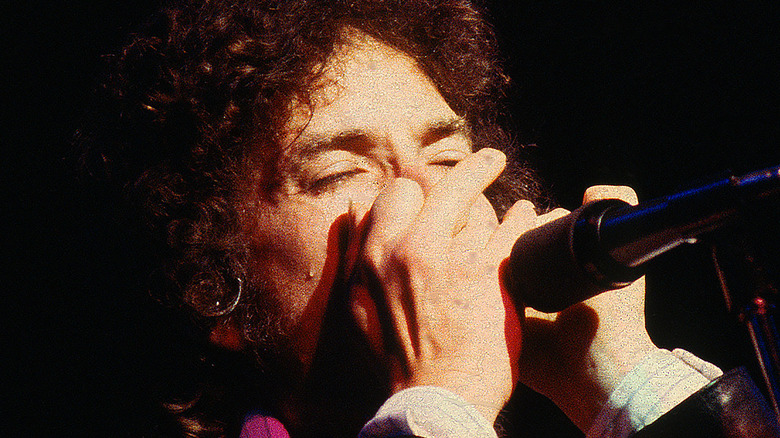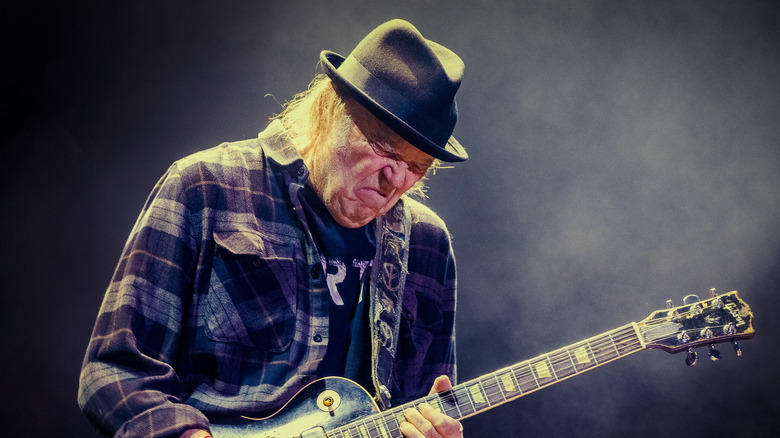Why So Many Famous Musicians Sell Their Music Catalogs
In January 2022, legendary musician and Nobel-Prize-winner, Bob Dylan, sold his music catalog for an undisclosed amount, likely in the range of $200 million, as CNN reported. He wasn't the first to do so, of course: Bruce Springsteen, Stevie Nicks, and Neil Young have done so as well, according to a companion CNN report, all with deals worth well into the millions.
When someone writes and then publishes a song, they own certain rights to it. In essence, that means that whenever the song is performed (to include, say, on the radio or a streaming platform) the songwriter gets an amount of money. Multiply that by thousands or millions of plays and streams, and a popular song can be a lucrative thing to possess. Do the same with dozens or even hundreds of songs and the songwriter's catalog is now not unlike a stock portfolio. And just like stock portfolios, songwriter catalogs can be bought and sold.
Many rock stars are approaching old age
When Bob Dylan sold his publishing rights in 2022, he was already 80 years old. Similarly, Stevie Nicks was comfortably in her 70s, as was Neil Young when he sold his. Hannah Karp, editorial director at Billboard, told CNN that selling off these catalogs for cash makes sense from an end-of-life planning standpoint. "A lot of the artists that are selling their catalogs are getting to a point in their lives where they are planning their estates, sort of planning for the future and they are at a point in their lives where it makes sense to sell their music to provide for their families," Karp said. Similarly, a change in tax law between 2021 and 2022 caused a lot of wealthy rockers to try to ink deals before they took a huge hit on the capital gains tax, which may have prompted a late surge of such sales as 2021 wound down.
And although some younger artists, such as Imagine Dragons and Shakira, have sold portions of their catalogs, Karp says that selling off those rights this early may not make the most sense. "If you're a young artist and blow the big chunk of money and then you get into your older years and you don't have any income coming in, you'll probably regret it," Karp said, comparing owning music rights to owning a retirement fund.

